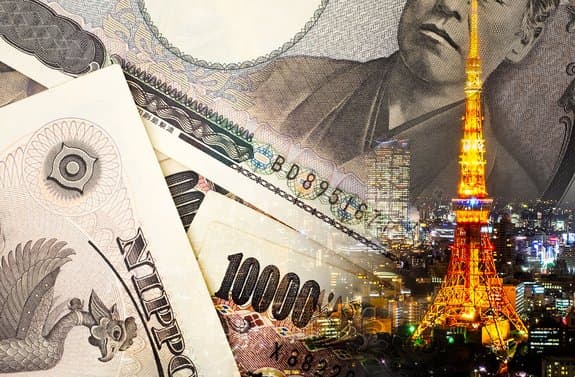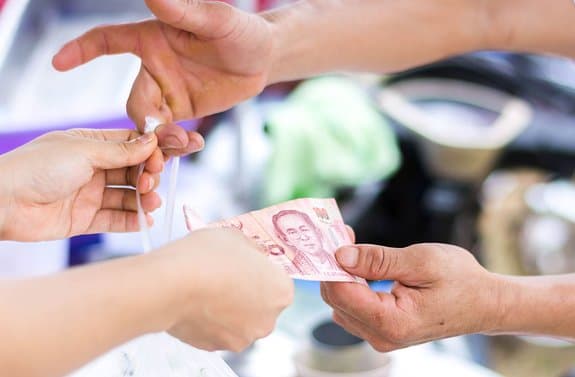
5 reasons for keeping cash in sight within Japan's 'Cashless Vision'
In order to stay current with a new digital era, the Japanese government has promised to make Japan cashless by 2025. In pursuit of this, the Ministry of Economy, Trade and Industry published a white paper recommending a Cashless Vision.
A recent Financial Times article explains why cash should not be expected to do away with cash so easily:
'The state’s vision of a cashless society must overcome a visceral mistrust of surveillance
The Japanese government has placed itself in open hostility to cash, declaring an ambition of doubling cashless payment rates by 2025 and changing the habits of a public that Boston Consulting Group estimates uses hard currency for 65 per cent of transactions...'
Enter large financial services companies, eager to dominate the virtual currency landscape. The main contenders include Alipay, Mitsubishi UFJ Financial Group with their and Mizuho Financial Group. Using stablecoins (virtual currency pegged to the country's currency), Mizuho's J-Coin hopes to avoid the volatility issues that come with cryptocurrency.
What we have here is an experimental virtual currency with the potential to work well alongside cash. The key word is 'alongside,' for the following the 5 reasons:
5 reasons why virtual currencies will not replace cash in Japan
1) Cash minimises risk
The goal of establishing the country's main virtual currency is ambitious, particularly in a country that has seen more that its share of cryptocurrency hacker attacks. Why should those who cannot afford to gamble with their earnings be forced into a cashless vision that cannot 100% safeguard against system failures or cybercrime?
“To begin with, do we really need a digital currency in the nation where cashless living isn’t making much progress?”
2) Cash is cost efficient
While there is a cost to handling cash, retailers do not pay a commission for cash transaction the way they do with card payments. According to Mizuho, the commission for the stablecoin transactions will be less than cards, any cost is still more than cash.
3) Cash empowers
While Mizuho's promise to keep the commission for stablecoin transactions lower than that of debit or credit cards, what would happen if the government's Cashless Vision is fully realised? Who can guarantee those costs will stay fair? As long as cash is around, the public retains the power to pay for goods and services fairly and freely.
4) Cash is easy
For customers to spend J-Coins, they need a working smartphone, a Mizuho Bank account, a Mizuho Wallet app, Wi-Fi connection or mobile data as well as virtual currency literacy.
"It's much faster to pay with cash than wait for a card transaction,"
5) Cash is embedded into Japanese culture
One visit to the coin-riddled Itsukushima Floating Torii Gate and the touch of the tangible money takes visitors on a trip through time. Countless visitors have shared the experience of wedging small Yen coins into the cracks that run up it's sturdy legs, paying tribute to the wonder of the centuries-old shrine.
We can expect that resilient cash will weather the storm of virtual currency, but we must hope that if payment policies directly restrict the use of cash, the public will protest. While both forms offer different advantages, one does not replace the other, and Japan knows this very well. Experts predict that the Cashless Vision will not be an easy transition, to expect freedom-defending resistance or at the very least, tenacious reluctance.
“Cash has been in demand so far and it’s our mandate to make it available"
China and South Korea may have been much quicker to reduce cash use in favour of e-payments, but tech-hub Japan continues to use cash more than any other payment form; Perhaps this is because cash really is the fastest, safest and easiest option, even in futuristic Tokyo!
'Japanese retailers love cash. At a time when almost all transactions in South Korea and most sales in China are cashless, [approximately 65%-80% of Japanese retail sales are in cash. That’s because in Japan physical money is a deeply felt part of life. [Cash] is cultural, especially in Japan, where a tradition called otoshidama requires that children get small amounts of cash on New Year's Day in adorable little envelopes called pochi bukuro...Japanese people routinely turn in their old bills for fresh, unfolded new ones.'
Related news



